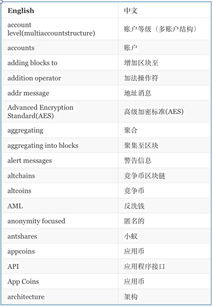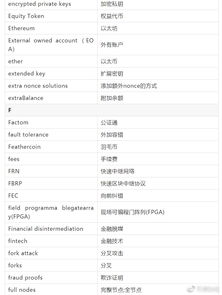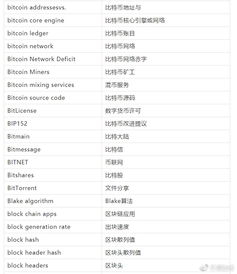Introduction to Blockchain Vocabulary

Blockchain technology has revolutionized the way we perceive and interact with digital transactions and data storage. As this technology continues to evolve, it's essential for individuals and professionals to familiarize themselves with the terminology associated with blockchain. This article provides an overview of key blockchain-related vocabulary, ensuring that readers can navigate the field with confidence.
Core Blockchain Terms

Understanding the foundational terms of blockchain is crucial for grasping the technology's principles and applications.
Blockchain - A decentralized digital ledger that records transactions across many computers so that the record cannot be altered retroactively without the alteration of all subsequent blocks and the consensus of the network.
Block - A container for a set of transactions that have been broadcast across the network and collected in an orderly manner. Each block contains a timestamp and a link to a previous block, forming a chain.
Transaction - A record of an exchange of value between two parties, which is broadcast to the network and included in a block after verification.
Miner - A participant in the blockchain network who uses computing power to validate transactions and add new blocks to the blockchain. Miners are rewarded with cryptocurrency for their efforts.
Consensus Algorithm - A protocol that enables consensus among network participants on the validity of transactions and the order in which they are added to the blockchain.
Advanced Blockchain Concepts

As blockchain technology becomes more sophisticated, it's important to understand some of the more advanced concepts.
Smart Contract - A self-executing contract with the terms of the agreement directly written into lines of code. Smart contracts automatically enforce and execute the terms of an agreement when predetermined conditions are met.
Decentralization - The distribution of processes, authority, or power away from a central location or person to multiple entities. Blockchain technology is decentralized, meaning that no single entity has control over the entire network.
Public Blockchain - A blockchain that is open to anyone to join and participate in. Transactions and records are visible to all participants in the network.
Private Blockchain - A blockchain that is restricted to a specific group of participants. Transactions and records are not visible to the public.
Interoperability - The ability of different blockchain networks to communicate and transact with each other. Interoperability is crucial for the development of a cohesive and efficient blockchain ecosystem.
Blockchain-Specific English Phrases

There are several English phrases specific to blockchain that are commonly used in discussions and documentation.
Proof of Work (PoW) - A consensus mechanism that requires miners to solve complex mathematical problems to validate transactions and add new blocks to the blockchain.
Proof of Stake (PoS) - A consensus mechanism where validators are chosen to create new blocks based on the number of coins they hold and are willing to
